Daily Top-20 MCQs (Set-6)
for CSS, PMS, PCS, FPSC and related Exams
Which team won ICC World Cup 2019?
- England
The largest salt water lake in the world is?
- Caspian Sea
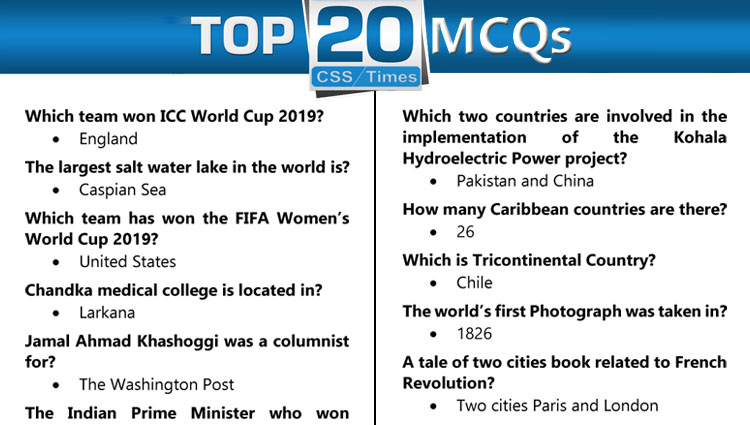
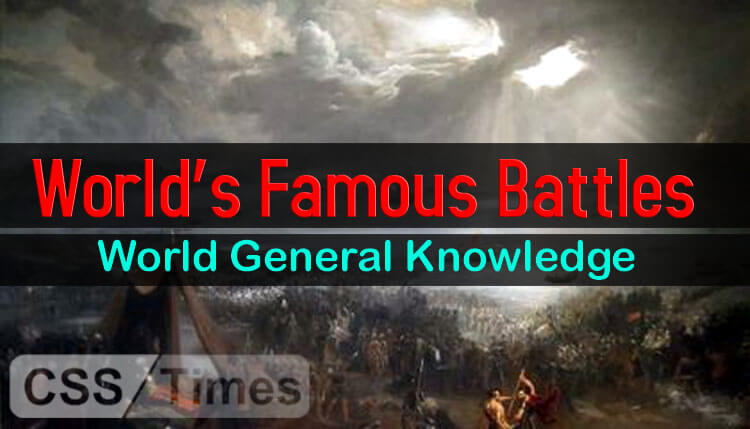
The decisive battle in the Vietnam War, this was launched by the Viet Cong of North Vietnam against South Vietnam, the United States and their allies on January 30, 1968 during the Vietnamese New Year or “Tet.” The offensive, which occurred prior to a ceasefire, had the Viet Congs disguised as revelers in a countrywide and well-coordinated attack with more than 80,000 Communist troops striking 100 towns and cities, and was considered the largest military operation conducted by either side during the war. Since the War of 1812, this was the first time that American forces were unable to gain victory.

Having a general knowledge of the world can be beneficial in a variety of ways. It can help you to understand current events, make informed decisions, and better understand the perspectives of others. It can also make you more well-rounded and culturally aware, which can be beneficial in both personal and professional settings. Additionally, having a general knowledge of the world can make you a more interesting and engaging person to talk to, as you will have a wider range of topics that you can discuss with others.
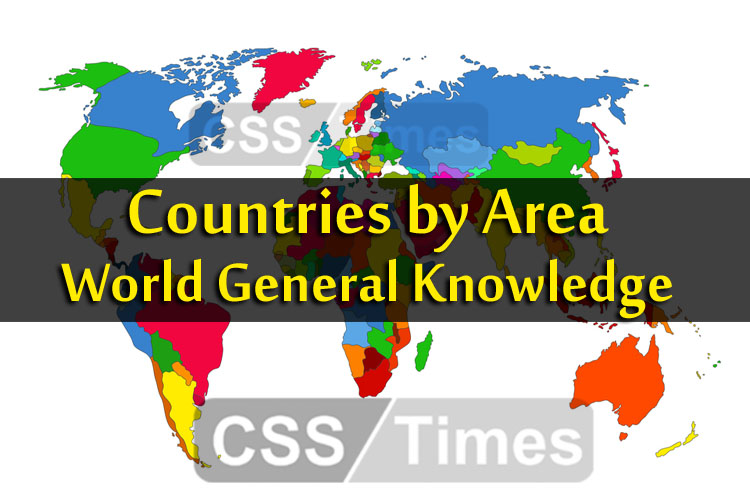
The independent country is not only self-governed nation with own authorities, this status needs the international diplomatic recognition of sovereignty. Thereby, we can say, that the total number of independent states in the world are 197, including fully recognized 193 members of the United Nations, 2 countries, Vatican City and Palestine, have the status of permanent observers in the UN. Another 2 states we include are Kosovo (recognized by 111 UN members) and Taiwan (recognized by 22 countries).
Vatican City State was founded following the signing of the Lateran Pacts between the Holy See and Italy on February 11th 1929.
These were ratified on June 7th 1929. Its nature as a sovereign State distinct from the Holy See is universally recognized under international law.
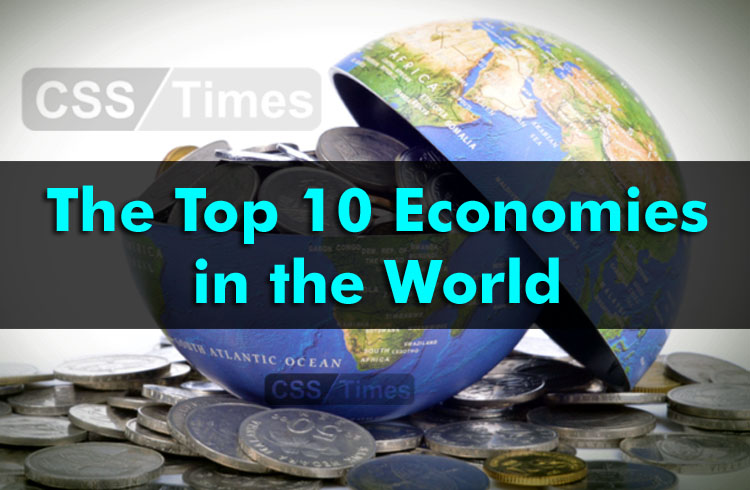
Note: This list is based on estimates for 2017 by IMF’s World Economic Outlook Database, April 2017. Select data is from the CIA World Factbook. (Nominal GDP = gross domestic product, current prices, U.S. dollars, GDP per capita (PPP) = gross domestic product based on purchasing-power-parity (PPP) per capita, current international dollar, and GDP based on PPP = gross domestic product based on purchasing-power-parity (PPP) valuation of country GDP, current international dollar)
The U.S. economy remains the largest in the world in terms of nominal GDP. The $19.42 trillion U.S. economy is 25% of the gross world product. The United States is an economic superpower that is highly advanced in terms of technology and infrastructure and has abundant natural resources. However, the U.S. economy loses its spot as the number one economy to China when measured in terms of GDP based on PPP. In these terms, China’s GDP is $23.19 trillion exceeds the U.S. GDP of $19.42 trillion. However, the U.S. is way ahead of China in terms of GDP per capita in nominal terms as well as PPP; GDP per capita (PPP) for the U.S. economy is approximately $59,609 versus $16,676 in China. In nominal terms, China’s GDP per capita further falls to $8,480.
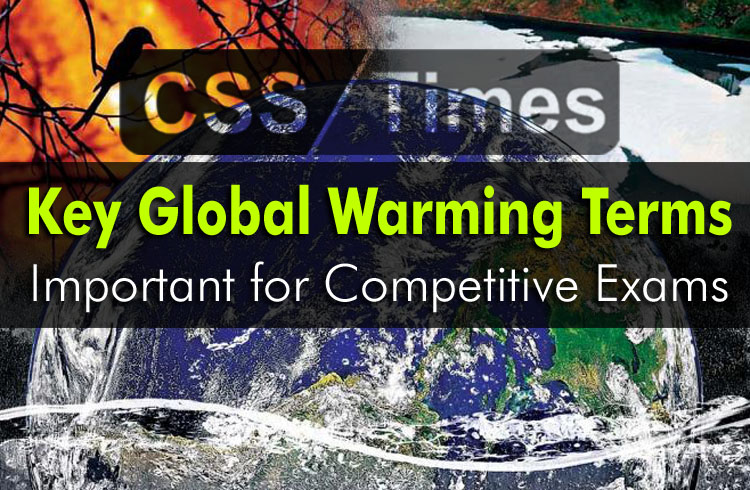
The chemical compound carbon dioxide (also known by its shorthand CO2) is the primary greenhouse gas and driver of climate change.
A greenhouse gas is a chemical compound found in the Earth’s atmosphere, such as carbon dioxide, methane, water vapor and other human-made gases.
In the climate change space, emissions refer to greenhouse gases released into the air that are produced by numerous activities, including burning fossil fuels, industrial agriculture and melting permafrost, to name a few. These gases cause heat to be trapped in the atmosphere, slowly increasing the Earth’s temperature over time.
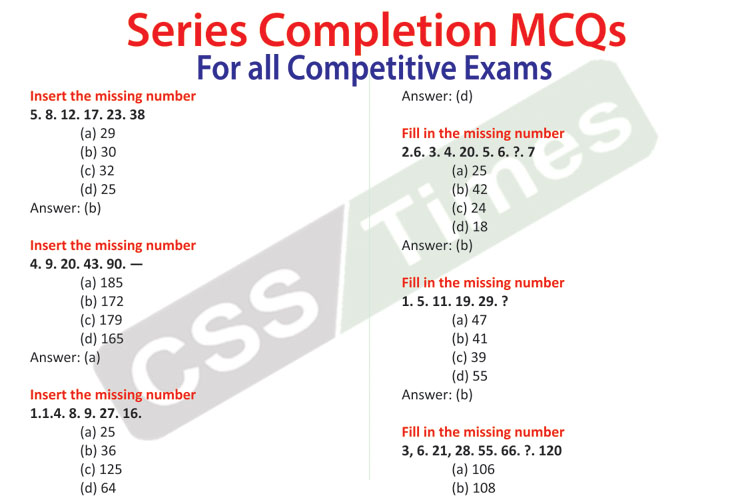
Insert the missing number
5. 8. 12. 17. 23. 38
(a) 29
(b) 30
(c) 32
(d) 25
Answer: (b)
Insert the missing number
4. 9. 20. 43. 90. —
(a) 185
(b) 172
(c) 179
(d) 165
Answer: (a)
Insert the missing number
1.1.4. 8. 9. 27. 16.
(a) 25
(b) 36
(c) 125
(d) 64
Answer: (d)

A series of instructions that tells a computer what to do and how to do it is called a–
(a) Program
(b) Command
(c) User response
(d) Processor
(e) None of these
Answer: (a)

Top 10 Key Space Missions | World General Knowledge Series
Since Russia’s Sputnik 1 satellite entered space on 4 October 1957, thousands of spacecraft – including Earth satellites and deep-space probes – have launched into the cosmos.
Over the last 6 decades, space travel has come on leaps and bounds, with the development of liquid and solid fuels and the use of solar panels and radioactive power sources among many of the impressive innovations, allowing space agencies across the planet to undertake evermore ambitious missions that would once have never been thought possible.
Ten key missions that have advanced the field of space travel to a whole new level are:
(1972 – 2003)
or Avicenna 980 – June 1037Abu Ali al-Hussain Ibn Abdallah Ibn Sina was a Persian physician and philosopher. He was born in 980 A.D. at Afshana near Bukhara (in present-day Uzbekistan) then capital of the Samanid Dynasty. He was an encyclopeadist, philosopher, physiologist, physician, mathematician, astronomer, logi1cian and poet. He gained the titles of Shaikh al-Ra’is (leader among the wise men) and Hujjat al-Haq (proof of God), displayed a remarkable aptitude for learning from an early age.